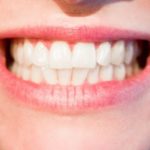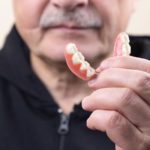4 Tips To Preventing Gingivitis
Oral hygiene is a vital part of a person’s well-being. No matter how beautiful or handsome a person is if you have to hold your nose when he or she speaks it’s a major turn-off.
Tooth decay follows the common cold as the most dominant disease in the United States. Children do not only experience this, as this happens to anybody of any age. It occurs when a sticky substance called plaque forms on the teeth and combines with the starches of the food that you consume. The acid produced by this mixture attacks the tooth enamel causing your tooth to erode and have cavities. The next most common dental problem is halitosis or bad breath. However, people who suffer from this are usually unaware of their condition. Statistics say that 1 in 4 people have bad breath on a regular basis and an estimate of 65% of Americans suffer from this terrible yet preventable condition.
The third most common is gum disease, also known as periodontal disease, which is an infection of the gums around the teeth. Periodontal disease is one of the leading causes of tooth loss among adults, and some studies have shown that there might be a connection between periodontal and heart disease. There are two major stages of periodontal disease, gingivitis, and periodontitis. Gingivitis is the inflammation of the gingiva or gums, which commonly happens due to plaque or bacteria that accumulates on the teeth. Untreated gingivitis can worsen to periodontitis and then tooth loss.
Let us put our focus on gingivitis. A person commonly has gingivitis due to poor oral hygiene. Don’t be too lenient though as gingivitis is not only related to poor oral health. Hormonal changes that occur during puberty, menopause, menstrual cycle, and pregnancy also raise the risk of swelling of the gums. Cancer, diabetes, and even human immunodeficiency virus or HIV are also linked to gingivitis. Mild cases of gingivitis might be easy to overlook as there might be no discomfort felt. Healthy gums are pale pink, firm, and fit tightly around the teeth. A person with gingivitis, on the other hand, has dark red, swollen gums, gums that bleed easily when brushing or flossing, and halitosis or bad breath.
The question about oral hygiene is not how regularly you brush your teeth but how you brush your teeth. Dental problems are no good, but luckily these are easy to prevent. Read on as we discuss the top 4 tips to preventing gingivitis.
1. Brush and Floss
Cliché as it may sound, brushing your teeth regularly at least twice a day, is the best way to prevent gingivitis. Brushing properly and regularly removes the plaque that sticks to your teeth that causes gingivitis. Don’t just stop at brushing. It is also highly recommended to floss, as brushing alone does not entirely remove the particles in between the teeth. Flossing is recommended at least once a day, best at nighttime so you can remove and eliminate the stuck food particles the whole day.
You might say that oral hygiene takes too much of your time, but this step is essential as well. Use antiseptic mouthwash as a final step to wash away any bacteria residue. Mouthwash also aids in keeping your gums healthy and teeth white. So don’t be too lazy to swish that mouthwash inside your mouth for at least 30 seconds so that all parts of your mouth are reached.
2. Live healthy
Maintaining a well-balanced diet helps strengthen your immune system that fights off the infection. Eat green leafy vegetables and citrus fruits to help your body restore damaged tissue and boost your body’s immune system.
Living healthy does not only mean eating healthy foods. It also entails a healthy lifestyle. So give up on your smoking habit, as tobacco is a significant risk factor that contributes to the development of periodontitis. Studies show that smokers are 7 times more probable to get periodontitis than nonsmokers. Smoking also lessens the chances of treatment success.
Stress also increases the chances to have this infection as stress lessens the strength of a person’s immune system.
3. Stop clenching and grinding
Teeth grinding or bruxism and jaw clenching are often related to stress and anxiety. Other causes of bruxism include heavy alcohol, caffeine, and smoking. This usually happens during deep sleep, concentrating too hard, and under extreme stress. During times that you are aware of this act, put the tip of your tongue in between your teeth to relax your jaw muscles. At night before going to bed, hold a warm face towel against your cheek in front of your earlobe to also release the stress and tension felt by your jaw muscles.
If you are suffering from extreme cases of bruxism and jaw clenching, it is recommended to wear bite guards. This way you protect your teeth from excessive grinding during sleep and prevent tooth fracture.
4. Regular visits to the dentist
Regular check-ups ideally should be twice a year or once every six months. A dentist can evaluate the state of your oral health and hygiene. This way, you can have an early diagnosis should you have a growing problem in your mouth. Having a regular cleaning also beats just brushing, flossing, and rinsing with mouthwash. A dentist can focus on the problem areas of your teeth and clean those hard-to-reach parts of your teeth and mouth. However, if you are at high risk of having dental disease, it is recommended that you visit the dentist every 3 or 4 months.
Prevention is always better than cure. However, if you already have gingivitis, then it is highly suggested you visit your dentist immediately. Do not belittle gingivitis. Some steps to treat gingivitis include using antibacterial toothpaste. With a wide variety of toothpaste available in the market, you are sure to find what works for you best. There are also several studies that say guava leaves are a useful treatment for oral hygiene problems such as gingivitis. Choose the best way you think suits you and your lifestyle.




























